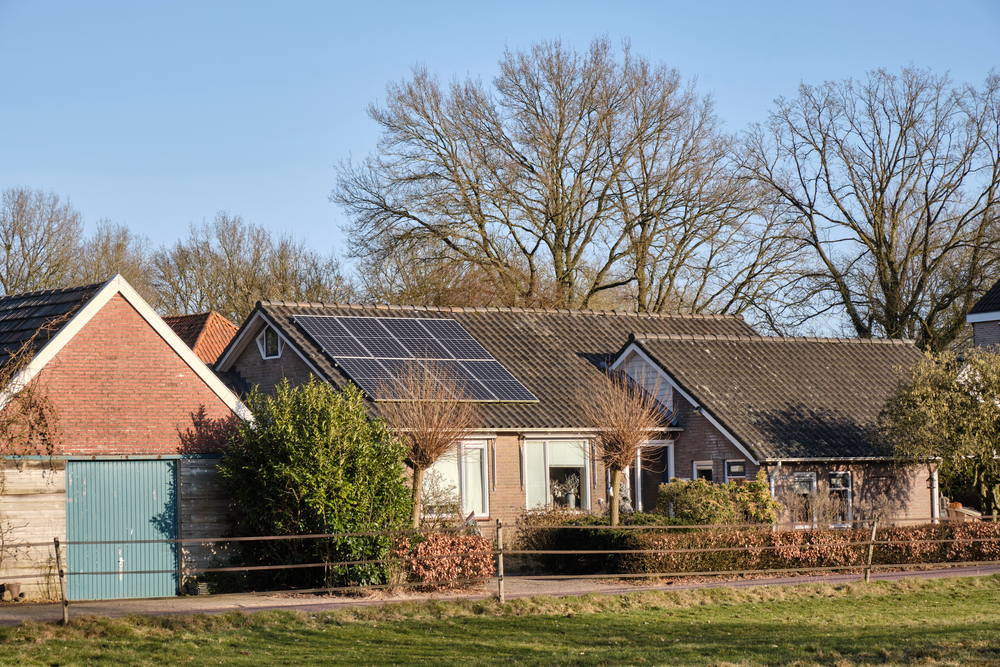Partner content
Here’s what you need to know about remortgaging your home

If you are a home owner and looking to invest in your property – perhaps by improving the insulation or adding an extra bathroom – what are your finance options?
Many homeowners in the Netherlands are unaware that their mortgage may hold the key to unlocking extra funds – whether for home improvements, sustainability upgrades or even a second property.
“Remortgaging can actually refer to three different things,” says Matthijs van der Heijden, from Expat Mortgages. “It might mean renegotiating the terms of your existing mortgage, such as the interest rate, or switching to a different bank – what we call refinancing. But it can also involve taking out an extra loan component on top of your current mortgage.”
Two categories
These additional loans fall into two categories: one for your primary residence (Box 1), and another for investment purposes (Box 3). A Box 1 remortgage is typically used for home improvements, sustainability upgrades or buying an adjacent garage. Box 3 loans, by contrast, could help fund a second property, a car, a holiday home or buying into a company.
“Most people don’t realise this is possible, which is a shame,” Matthijs says. “Using the equity in your property in a smart way can really work to your advantage, especially when the alternative is a high-interest personal or business loan.”
Property value
So what do the banks take into account before they will agree to remortgage your property? Firstly, they want to know the value of the house that is allowing you to take out the extra loan.
“You are still only allowed to borrow up to the value of the house but each bank has their own rules and some may stick at 90% of the loan-to-value when remortgaging if it is for investment rather than sustainability purposes,” says Matthijs. “The banks also want to be sure that you can pay the increased repayments so your income is key.”
“Using the equity in your property in a smart way can really work to your advantage”
Remember too, if you are considering a loan to make an investment of some sort – such as in a second home – the interest is not tax deductible.
And thirdly, some banks will want to know more about what you are planning to do with the extra loan. Some banks, Matthijs points out, won’t give you a 30 year loan to buy a new car because they say its economic life span is much shorter.
Next steps
So if you have decided you want a new kitchen and double glazing, what is your next step? “First you need to schedule a meeting so that we can go over the options and get an idea if your property is worth enough to support the increase,” he says.
Even if you have bought a house fairly recently, it can be interesting to remortgage because you can ask for a second valuation, based on the value of the property once the renovation work has been carried out, Matthijs points out.
“The bank then uses this second value to test your request for an extra loan, as long as your income is sufficient to make the repayments,” he says. “And of course, if you are taking energy saving measures, your utility bills will be less as well.”
Energy efficiency
New loans to pay for greater energy efficiency and sustainability measures are becoming increasingly popular. And, of course, not only are homes with a high energy label more popular, you may also qualify for a discount on the interest rate as well.
“If you took out the original mortgage without a discount on the energy rate, then usually if you make improvements within 24 months, and you do improve it to an energy label that makes you eligible for a discount, then the bank will still give it to you from the moment your new label is registered,” Matthijs says.
If you are thinking of going down this route, Expat Mortgages is working with a new partner focusing on boosting energy efficiency measures in homes. They’ll oversee the entire process from heat pumps to insulation and double glazing. “It gives you, as the home owner, a central person to talk to rather than all sorts of different suppliers, which can be difficult to coordinate,” he says.
“If you are planning on going green at home, there are a lot options out there,” Matthijs says. “You can do a lot of research yourself on the internet but if you really want to know what you can do as an individual, then set up a meeting and talk face to face.”
If you’ve got any questions about the process of buying a home in the Netherlands, you can always check out the FAQs on the Expat Mortgages website to see if they have the answers. Feel free to get in touch – they have an open chat line – if your question is not covered.
Expat Mortgages also hosts regular workshops on the process of buying a home in the Netherlands if you are thinking about taking the plunge. The next one takes place online on July 1 at 5.30 pm. Sign up here.
Thank you for donating to DutchNews.nl.
We could not provide the Dutch News service, and keep it free of charge, without the generous support of our readers. Your donations allow us to report on issues you tell us matter, and provide you with a summary of the most important Dutch news each day.
Make a donation